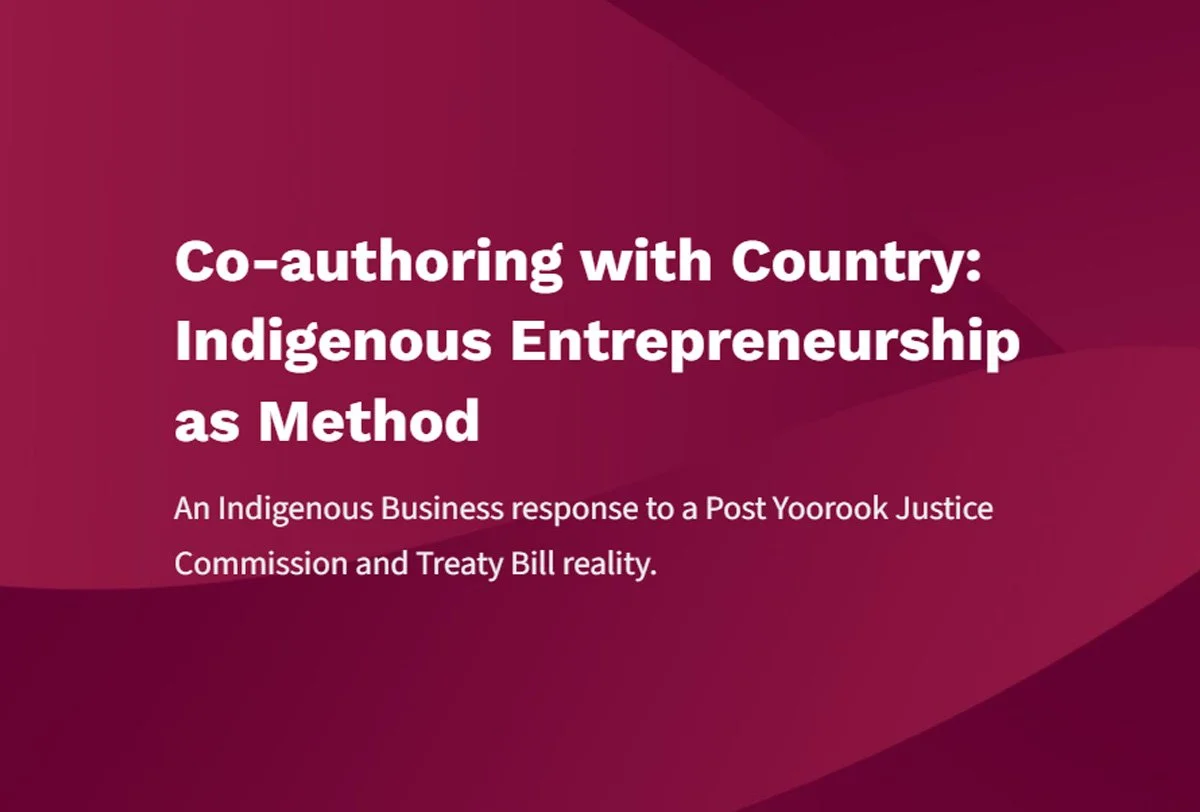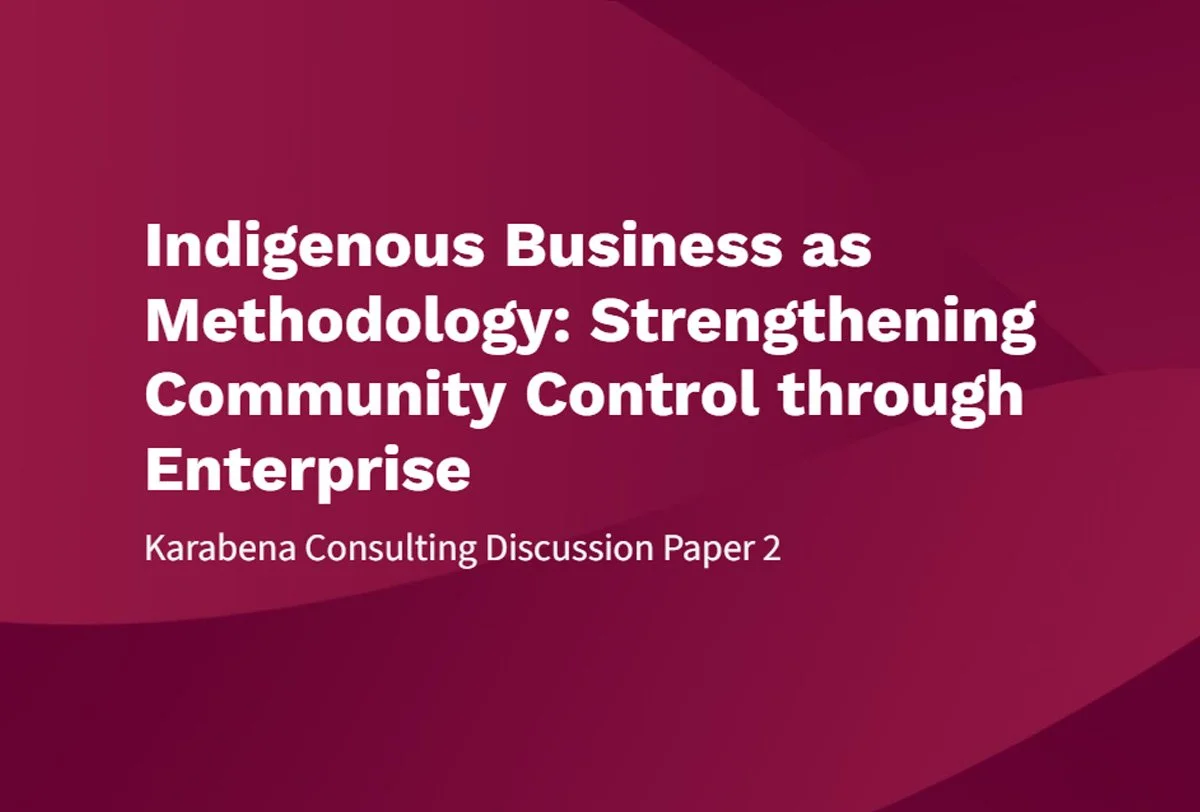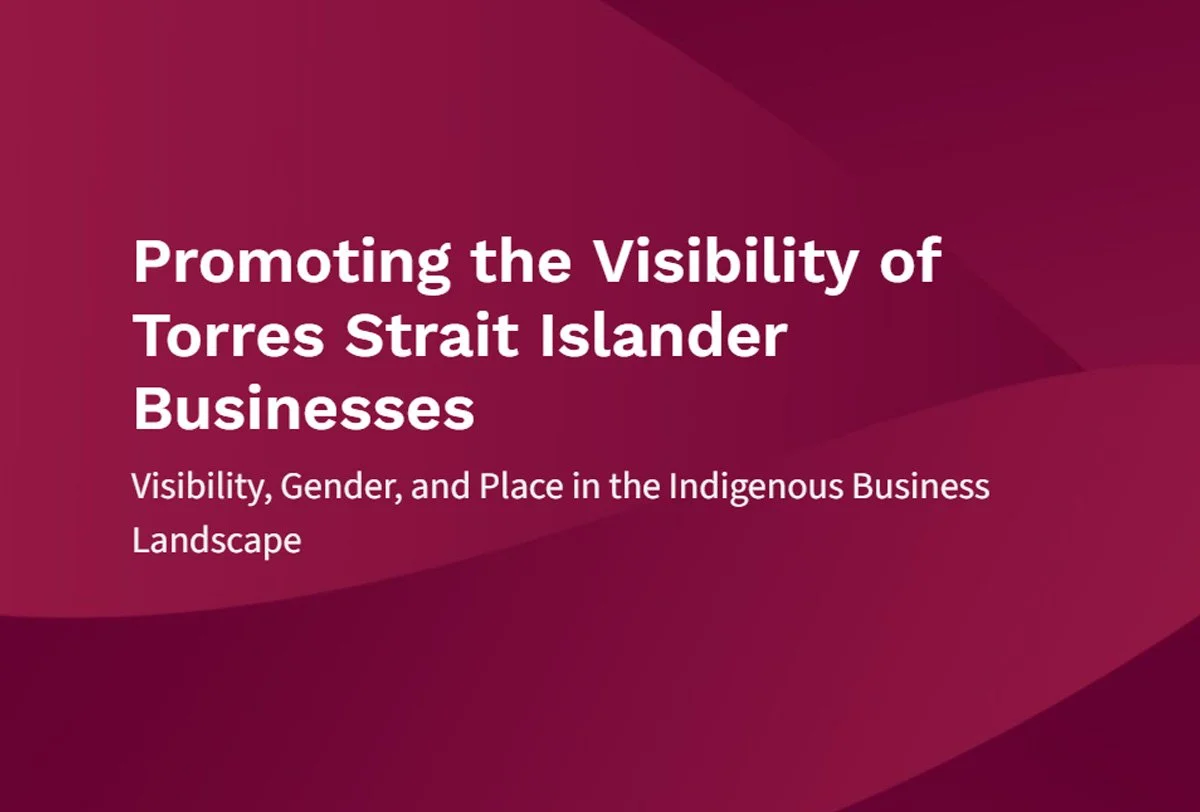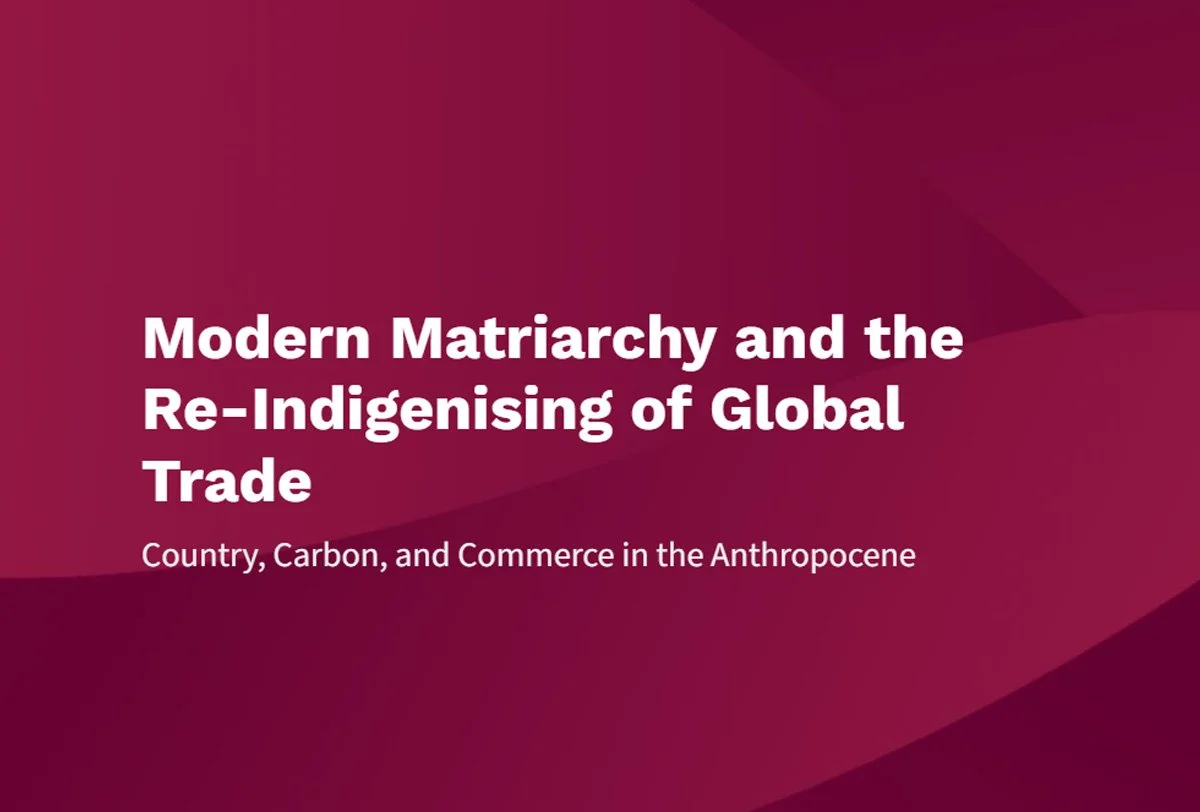Discussion Paper 1:
Co-authoring with Country: Indigenous Entrepreneurship as Method - An Indigenous Business response to a Post Yoorook Justice Commission and Treaty Bill reality.
This paper positions Indigenous business as both a methodology and an act of cultural governance. It argues that when enterprise is grounded in Indigenous ways of knowing, being, and doing, it becomes a means for communities to reclaim authority, express sovereignty, and co-author reform with Country. Indigenous entrepreneurship is framed as both economic participation and a relational practice that aligns culture, community, and commerce.
Discussion Paper 2:
Indigenous Business as Methodology: Strengthening Community Control through Enterprise
This paper advances the concept of Indigenous business as methodology — a disciplined, culturally grounded approach to systems reform through enterprise. It argues that Indigenous businesses are not merely economic entities, but vehicles for cultural governance, self-determination, and accountability.
Discussion Paper 3:
Indigenous Data Sovereignty in Practice: Karabena Consulting’s Novel Approach and Proof of Concept in the Gawler Region
This discussion paper outlines Karabena Consulting Trust’s innovative model of Indigenous Data Sovereignty (IDS) and demonstrates how it can be operationalised through the Keeping Families Healthy Together project in the Gawler region of South Australia. Grounded in Indigenous business as methodology, this approach reframes data collection and evaluation as acts of cultural governance, not extraction.
Discussion Paper 4:
Promoting the Visibility of Torres Strait Islander Businesses: Visibility, Gender, and Place in the Indigenous Business Landscape
This paper makes a straightforward case: non-erasure of Torres Strait Islander entrepreneurship must become standard practice across government, procurement, finance, chambers of commerce, and corporate Australia. While the growth of “Indigenous business” is a welcome shift towards self-determination, the reality is that Torres Strait Islander entrepreneurs—especially women—remain undercounted, under-resourced, and under-recognised
Discussion Paper 5:
Modern Matriarchy and the Re-Indigenising of Global Trade Country, Carbon, and Commerce in the Anthropocene
This paper highlights the Meriam experience as an enduring example of how Indigenous law is embedded in international law through the Mabo decision. It examines the leadership gap created when Indigenous governance principles—rooted in care, interdependence, and respect for Country—are displaced by management cultures that prioritise profit over purpose.
Discussion Paper 6:
Closing the 80-Cent Gap: Indigenous Value, Environmental Reform, and the Political Economy of Procurement
The 80-cent gap is not a pricing problem, it is a governance failure.
Indigenous enterprises price in environmental care, cultural authority and ethical labour, while procurement systems reward harm externalisation.
This paper explains why Indigenous businesses are not overpriced, they are operating ahead of economic reform.







